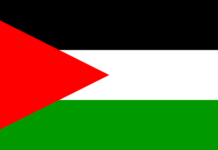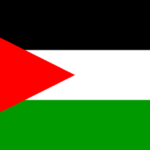Want to apply to a conference/summer school/competition outside of your area of expertise? Do these 4 things!
You know the feeling when you are a science major but the prize reads “The winning team will be required to solve a business case and receive $10, 000.00 with an all-expense paid trip to the finals in the USA”. This happens every now and then, where you find a mouth-watering offer for a competition or summer school, but it seems completely outside of your area of expertise. You are not alone in this; last year, I was faced with a similar dilemma when I saw a competition at the African Development Bank, yet I didn’t know anything about banking or finance. Most people will rather just ignore the competition, and claim that they are ineligible, but not me.
I went on to win the third prize overall with a $1, 000.00 prize! How in the world did an engineering major win a prize at a finance-focused competition?
As a sequel to my last article which was posted here, I will be discussing how you can apply for competitions, travel grants and conferences outside of your subject area. As a student in the sciences, I have seen that most fully funded events and conferences have a bias for other fields except sciences and engineering which is usually not fun (I certainly don’t want to be discussing cells and mechanics on a conference trip). So, in looking to attend the fun stuff, and getting some money on the side, a regular challenge for students is applying to competitions/conferences outside of their subject area.
In my experience, that has been proven to be quite easy! In fact, most of the competitions I have qualified for have been in the business field or related to humanities. So how in the world will an engineering major apply to a competition where the problem is to write a paper on finance or entrepreneurship? How do you write papers or compete in a space where you have little or no experience? You may want to try these five things:
- Stand on the shoulders of previous winners: In 2014, when I wrote my first business focused paper for the St. Gallen symposium, I was studying for an engineering degree and I had no knowledge of the topic of the competition. All I needed to do was to download few papers from the winners in the previous years, read them and followed their writing format and structure to complete mine. It’s no surprise that I was selected as one of the top 100 contributions and travelled all-expense paid to attend the event.
- Use the “lingo”: In applying to conferences/events in a certain field outside of your area of expertise, you must be aware of buzz words and language that are used in that sector. For instance, if you are applying to the United Nations, you must use words like “Sustainable Development Goals”, “Climate Change”, “Refugee Crisis”, “Equality” and all other development-related words. Makes you sound like an expert in the field.
- Read up about the country or context around the event: in 2016, I was chosen to attend a fully funded summer school in Azerbaijan. In writing the application/motivation letter, I just simply included some historical data about the country (gotten from Wikipedia) and thumped on that line! During the Skype interview, I consciously repeated the same line several times and that seemed to buy over the interviewers that I really knew a lot about the country (Thanks Wiki!).
- Find a way to link your current studies/work to the subject of the conference/summer school: Truth be told, if any sponsor will pay your flights, accommodation and fees to attend a program, they want to know what the ROI will be. Do well to link your attendance of the event back to your current work or studies, highlighting how your attendance will benefit the organisers and your college or community over the long term. An example is here: “I want to attend the summer school in China to experience the rich Chinese culture and be able to share lessons learned at the event with members of my local student union group at my college.”
 This list is not exhaustive, but I have found it handy and I am sure you will too. In the meantime, I am packing my bags to go to Rome, Italy again this week (for free, of course!). Please watch this space and of course, feel free to ask questions about travelling or life as a student in Ireland. My next article will be about how to getting a part-time job as an international student in Ireland. Thanks for reading! Aloha!
This list is not exhaustive, but I have found it handy and I am sure you will too. In the meantime, I am packing my bags to go to Rome, Italy again this week (for free, of course!). Please watch this space and of course, feel free to ask questions about travelling or life as a student in Ireland. My next article will be about how to getting a part-time job as an international student in Ireland. Thanks for reading! Aloha!
Oluwasegun Seriki is a 3rd year international PhD student at DIT Bolton street. He writes on lifestyle, travel and youth-led entrepreneurship and of course, he loves travelling! His passion is creative writing and he publishes his musings and meditations on life under the theme “Musings of a Broken Man”. He can be reached via email at seriseg@outlook.com
























